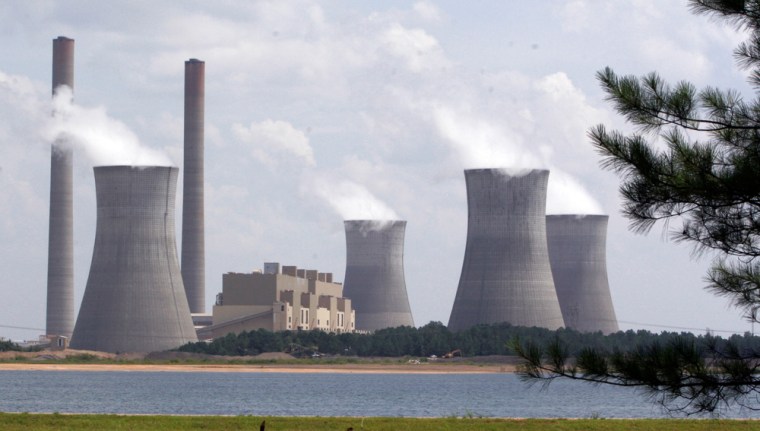The U.S. government has done the least among the world’s eight biggest economies to address global warming, a study released Thursday found.
The G8 Climate Scorecards 2008, released Thursday ahead of next week’s gathering of the Group of Eight in Japan, also found that none of the eight countries are making improvements large enough to prevent temperature increases that scientists think would cause catastrophic climate changes.
The gathering includes the heads of states of the U.S., Japan, Britain, Germany, France, Italy, Canada and Russia. Climate change is set to be a top issue at the summit.
Regine Guenther, director of the World Wildlife Fund climate change program in Germany, told reporters in the German capital that G8 leaders should commit to reducing emissions in their countries 40 percent by 2020 and 80 percent by 2050.
“If we don’t achieve that, the world’s climate will change in ways that we can’t even imagine today,” Guenther said.
“We’re not going to be able to fathom what the world may be like in 20 years if we aren’t able to reduce emissions,” he added.
At last year’s G8 summit in Germany, leaders agreed to seriously consider a goal of halving global emissions by 2050.
Britain tops list
The scorecard ranked Britain as the developed nation that has done the most to reduce carbon dioxide emissions and reach targets set by the Kyoto Protocol. France and Germany are close behind.
“But all three countries are at best half as far along the road as they should be,” a statement announcing the study said.
The scorecard was compiled by Ecofys, a Dutch consulting company, and commissioned by the World Wildlife Fund and insurer Allianz SE.
“None of the eight leading industrial nations have taken sufficient measures needed to be considered in line with the target to limit a worldwide increase in temperatures to 2 degrees centigrade,” said Niklas Hoehne, the author of the study.
The scorecard ranked the United States, Canada and Russia at the bottom, saying they had “failed the test.”
“The United States scores the worst of all G8 countries, being the highest emitter with the highest per capita emissions and an increasing trend in total emissions,” the report said, giving the U.S. “red” ratings in 11 of the 12 categories.
“Canada is second with a very high per capita emissions and a steadily increasing trend in total emissions,” it said.
“Russia ranks a bit better due to declining emissions in the early 1990s ... but since 1999 emissions are increasing steadily and there is hardly any policy in place to curb emissions.”
The study also gave Italy and Japan “red” overall ratings. Emissions from both are well above their Kyoto Protocol targets and there are few national measures in place to cut emissions.
Britain, France and Germany were given only a “yellow” overall rating, falling short of “green” for top scores.
Britain was lauded for its emissions being below their Kyoto targets but criticized for deriving only a small share of its power from renewable sources.
France was also lauded for getting its emissions under the Kyoto target and got plus points for its low emission rates, due to the high share of nuclear energy. But it was criticized for projections that emissions will rise if no policy changes made.
Germany was praised for its investment in renewable energy, but faulted for high emissions from coal-powered plants and transport. Its decline in emissions is due mainly to collapse of east German industry.
Time for global emissions trade?
Joachim Faber, an Allianz board member who helped compile the scorecards, said a global emissions trading market is important to fighting climate change, and that the EU should lead its development.
“The EU-specific trading system we have at the moment must serve as model system for one that we can found outside the EU, for the world economy,” he said.
The study criticized low energy efficiency in the U.S., but said there was hope in legislation under consideration by Congress and initiatives led by non-governmental groups.
The study also analyzed — but did not rank — five of the world’s fastest growing economies: Brazil, China, India, Mexico and South Africa. “These countries cannot be measured with the same ruler as industrialized countries,” the statement said.
